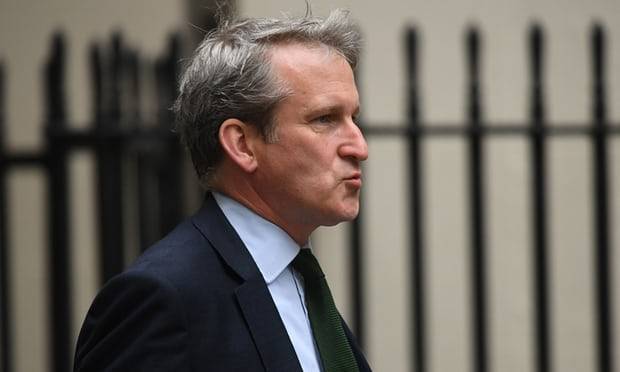Damian Hinds, the education secretary, said undergraduates from EU countries attending English universities from September 2019 will incur the same annual tuition fees as their English peers and have access to the same government-backed student loans for the duration of their degree course.
“Students from the EU make an important contribution to the universities sector and it is a testament to our system that so many students from abroad choose to come and study here,” Hinds said. “Today we are providing clarity and certainty on their fees for the duration of their courses.”
The government’s decision to extend the current arrangements on loans and tuition fees to the 2019-20 academic year means EU students will continue to enrol on the same basis as British students despite the formal March 2019 Brexit date having passed.
Hinds also announced that the maximum domestic tuition fee will be frozen at £9,250 for a further year in 2019-20, a move that had been expected following the government’s creation of an independent panel to look at the funding of tertiary education.
“We’ve already raised the amount of money graduates need to earn before starting to pay back their student loans, and freezing tuition fees for another year is another example of the steps the government is taking to support those in higher education,” Hinds said.
The most recent higher education actallowed the government to raise the maximum tuition fee in England by the rate of inflation, for those universities that performed well in its new teaching ratings. But public unease over high levels of student debt has seen the government refrain from raising fees, passing the problem to the independent panel to consider.
Nick Hillman, director of the Higher Education Policy Institute and a former special adviser to the government on higher education, said the decision to allow EU applicants to continue as home students for a further year made sense.
“It’s a pity that it comes five months after the Scottish government set their arrangements but at least there is now some certainty,” he said.
“University admissions offices will breathe a sigh of relief, though their finance directors are still likely to be worried.
“The best-informed predictions are that fewer EU students will come after Brexit but those that do come will pay the full international fees, so universities could actually see their fee income rise when different arrangements apply.
“Fixing the headline fee and guaranteeing home fees for EU students is therefore a financial double-whammy that will affect universities’ bottom lines, even though the clarity and the nature of today’s decision are welcome.”
No decision has yet been made about the long-term status of EU students, with fears raised by a leaked Home Office report last year that suggested EU nationals wanting to study in the UK would require the same stringent checks on academic ability, English language skills and funding as international students.
EU students account for more than 80,000 of the 1.6 million first-time undergraduates at UK universities, including 65,000 studying in England, and nearly 50,000 postgraduates. Hinds’ announcement will be felt most keenly at universities with high numbers of EU undergraduates and fewer non-EU international students.
More about: #Brexit
















































